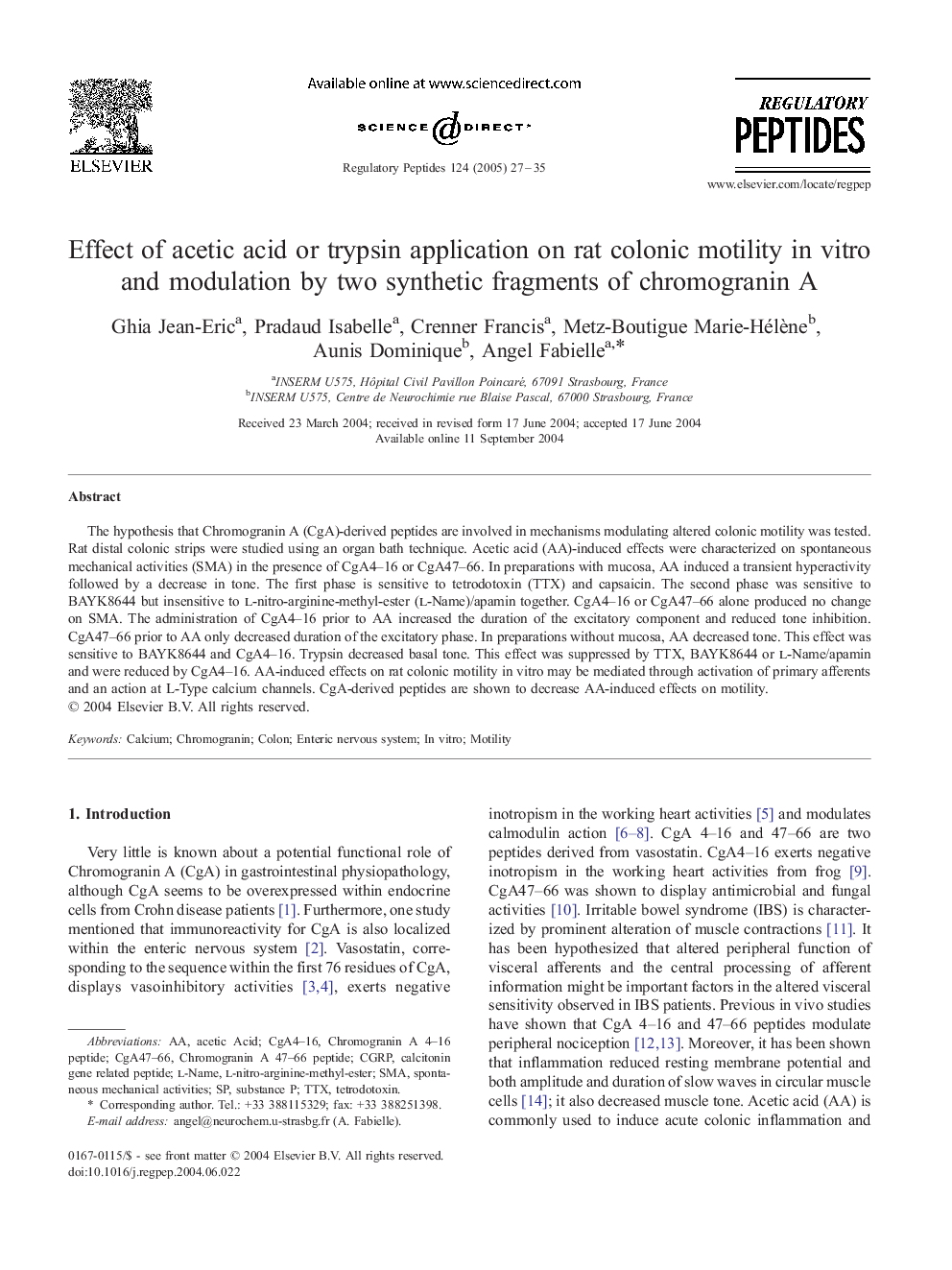| Article ID | Journal | Published Year | Pages | File Type |
|---|---|---|---|---|
| 9894528 | Regulatory Peptides | 2005 | 9 Pages |
Abstract
The hypothesis that Chromogranin A (CgA)-derived peptides are involved in mechanisms modulating altered colonic motility was tested. Rat distal colonic strips were studied using an organ bath technique. Acetic acid (AA)-induced effects were characterized on spontaneous mechanical activities (SMA) in the presence of CgA4-16 or CgA47-66. In preparations with mucosa, AA induced a transient hyperactivity followed by a decrease in tone. The first phase is sensitive to tetrodotoxin (TTX) and capsaicin. The second phase was sensitive to BAYK8644 but insensitive to l-nitro-arginine-methyl-ester (l-Name)/apamin together. CgA4-16 or CgA47-66 alone produced no change on SMA. The administration of CgA4-16 prior to AA increased the duration of the excitatory component and reduced tone inhibition. CgA47-66 prior to AA only decreased duration of the excitatory phase. In preparations without mucosa, AA decreased tone. This effect was sensitive to BAYK8644 and CgA4-16. Trypsin decreased basal tone. This effect was suppressed by TTX, BAYK8644 or l-Name/apamin and were reduced by CgA4-16. AA-induced effects on rat colonic motility in vitro may be mediated through activation of primary afferents and an action at L-Type calcium channels. CgA-derived peptides are shown to decrease AA-induced effects on motility.
Keywords
Related Topics
Life Sciences
Biochemistry, Genetics and Molecular Biology
Biochemistry
Authors
Ghia Jean-Eric, Pradaud Isabelle, Crenner Francis, Metz-Boutigue Marie-Hélène, Aunis Dominique, Angel Fabielle,
